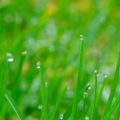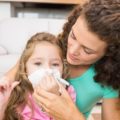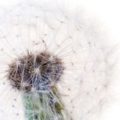
For most of us, spring can't come fast enough. We're looking forward to the warm weather, bright sunshine and blooming flowers. However, for people who suffer from seasonal allergies, spring can be the worst time of the year, bringing on sneezing, itching, coughing and stuffy noses.
Here are some tips for coping with your seasonal allergies:
- Change your air conditioner filters: Changing your filters when spring arrives and again mid-summer can help ensure that your AC is capturing pollen that might otherwise aggravate your allergy symptoms.
- Change your clothes: After you come inside, take a shower and change your clothes so you won't contaminate your home with pollen. Also refrain from hanging laundry to dry outside during the spring.
- Check pollen counts: If your symptoms are severe, you may want to check the daily pollen counts before you leave the house. Pollen counts are usually highest in the morning, so if you have to go outside, do so later in the day.
- Cut out dairy: Dairy thickens the mucous secretions of some people, making your sinuses more likely to trap pollen and other allergens. If you notice that dairy has this effect on you, then you may find it beneficial to cut it out of your diet during peak allergy seasons.
- De-stress: Some people say that our bodies are more susceptible to allergies when we're highly stressed. To prevent a major allergy attack, try adopting some calming daily practices that will help you push stress out of your life. Start practicing yoga, meditating, taking daily walks or pursuing some of your favorite hobbies.
- Eat raw, local honey: Some people believe that eating local honey can help you gradually build up an immunity to your local pollinators, in the same way allergy shots work to slowly expose individuals to allergens.
- Lose the histamines: Some foods naturally release histamines, which tend to cause allergic reactions. If your body is already irritated and on high-alert due to the season, then it may be wise to stay away from fermented foods, which are high in histamines.
- Stay indoors: Especially on dry, windy days, it's best for allergy-sufferers to stay inside to avoid pollen. If you start getting cabin fever, take the chance to go for a walk after it rains — this is when the least amount of allergens are floating around in the air. Also, keep your windows and doors shut.
- Swap chores: If you suffer from seasonal allergies, delegate outdoor tasks like gardening, weeding and mowing the lawn to someone in your family that doesn't experience symptoms.
- Try acupuncture: Acupuncture isn't fully accepted as an allergy solution in the West, but many people find that it helps to alleviate their symptoms. There also aren't any side effects to receiving acupuncture, which can make it a good option for some people concerned about taking medication.
- Turn on the AC: Switch the air conditioner on to filter out pollen from the air, and keep a portable high efficiency particulate air (HEPA) filter in your bedroom. Getting a dehumidifier can also help your symptoms.
- Use a neti pot: A neti pot is used for nasal irrigation at home, allowing you to wash out your sinuses. This can remove pollen and mucous, easing your symptoms. Just remember to use bottled water for sanitary reasons.
- Vacuum: Clean your floors more often than usual with a vacuum that has a HEPA filter.
If you are in need of allergy bedding or allergy control products for your seasonal symptoms, check out Allergy Be Gone today!









